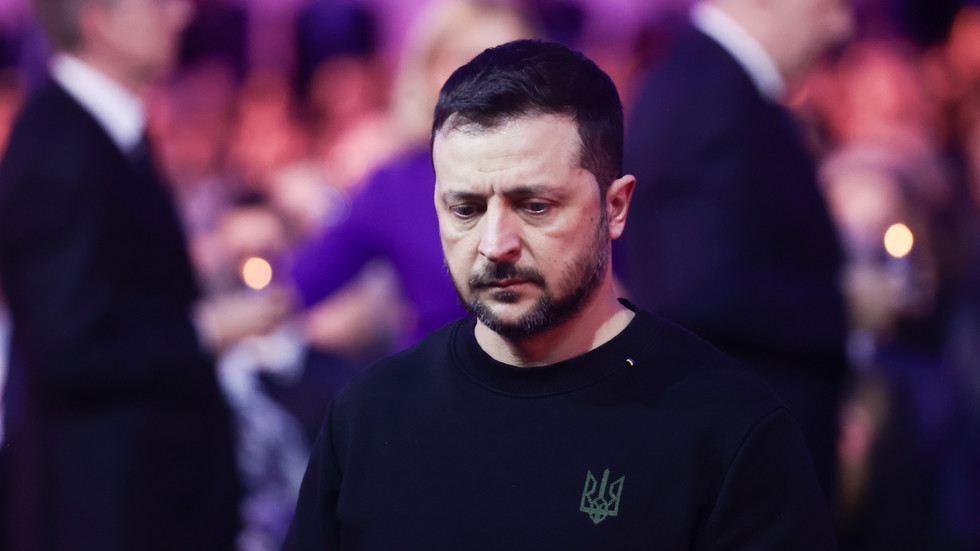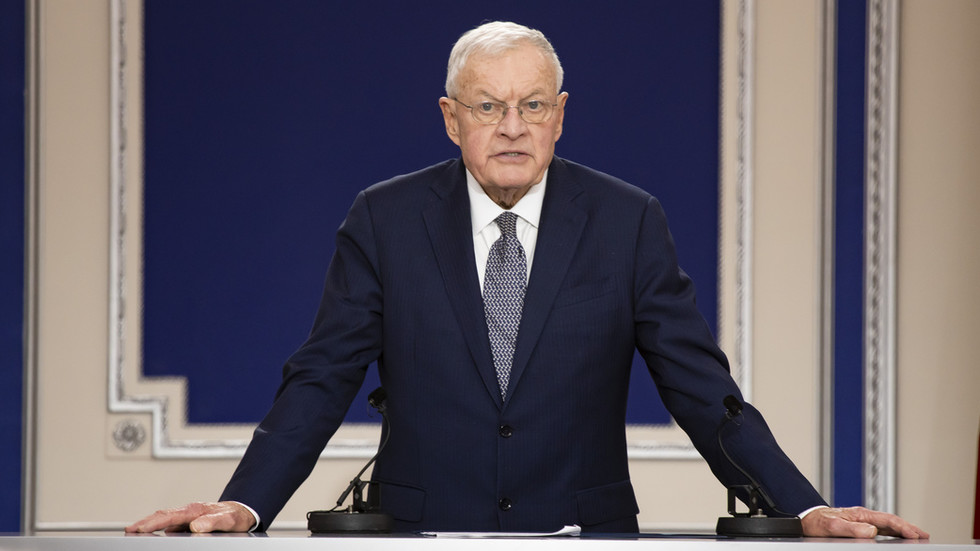There is no possibility for Hamas and Israel to strike a ceasefire deal because Benjamin Netanyahu wants the “killing” in Gaza to continue, the Palestinian Authority’s Foreign Minister Riyad al-Maliki has told Euronews.
"He (Netanyahu) wants to extend the war. And so a ceasefire will stop him from (...) achieving his aims and objectives," al-Maliki said in an interview on Tuesday after attending a meeting of EU foreign affairs ministers in Brussels.
"Netanyahu knows very well that if there is going to be a cessation of hostilities (...) Americans and many others would intervene in order to make what is really temporary (...) permanent," he explained, adding that the Israeli premier is keeping the entire region "hostage to his own political ambitions."
Indirect truce talks between Israel and Hamas, mediated by Qatar and Egypt, resumed on Tuesday after discussions consistently failed to yield results in recent days.
The stakes are enormously high, with Netanyahu confirming on Monday evening that his long-anticipated military operation in Rafah would go ahead, despite international outcry amid fears the move will further deepen the humanitarian catastrophe in Gaza.
Al-Maliki, who represents the Palestinian Authority’s Fatah-run government in the West Bank, warned that the much-feared offensive on Rafah could trigger instability in the wider region, including potential violence in Lebanon, and a "regional war" involving the US.
More than 1.4 million Palestinians are believed to be sheltering in Rafah, the southern Gazan city that lies on the border with Egypt. Israel claims the city is Hamas’ last stronghold in Gaza, and said on Tuesday that it had intelligence to suggest that the Rafah crossing into Egypt was being used for “terrorist purposes.”
"We might see atrocities happening in Rafah. If that's the case, it's not only Israel that will be harmed internationally, but also the United States of America," al-Maliki warned.
Speaking earlier on Monday, the EU’s foreign affairs chief Josep Borrell criticised Netanyahu for flouting the bloc's warnings and proceeding with the planned Rafah offensive.
On Tuesday, Israeli officials said their forces had taken control of the Gaza side of the Rafah crossing, which is the main route for aid to enter the besieged territory, and that it had also closed both the Kerem Shalom crossing in the south and the Erez crossing to the north.
This despite Netanyahu agreeing with President Biden on Monday evening to keep the Kerem Shalom crossing open for humanitarian needs, according to a White House readout,
Al-Maliki said that no trucks have been able to cross into Gaza over the 48 hours, warning that the situation is "really very dangerous," not only because of the threat of bombardments but also because of increasing famine among Gaza's population.
Europe "disillusioned'
Al-Maliki also referenced comments made by European Commission chief Ursula von der Leyen, who said in an electoral debate last week that a ground offensive in Rafah would be "unacceptable."
"If you compare what she said on October 7th and what she said in the last two days about the possibility of Israel attacking Rafah (...) she's trying to say we will look, we try to take action."
Von der Leyen has in recent months been fiercely criticised for her unwavering stance of solidarity with Israel and her hesitance to call for Israeli restraint in Gaza, where almost 35,000 Palestinians are estimated to have lost their lives since October, according to the Hamas-run authorities.
An EU spokesperson for foreign affairs said earlier on Tuesday that member states would gather to "reflect" on their response should Israeli troops move on the ground into Rafah. It is unclear, however, what concrete actions are on the table, as previous proposals to use sanctions and trade barriers to exert diplomatic pressure on Netanyahu have previously failed to earn the unanimous backing of all 27 member states.
Al-Maliki says he senses a "disillusionment" and "anger" amidst EU counterparts at what he described as Israel's "total violation of international law" that is bringing the region into "utter collision."
He also commended efforts spearheaded by Dublin and Madrid to recognise the State of Palestine, a move both capitals say will trigger progress in the peace process. Al-Maliki also named Slovenia and Malta as well as non-EU member state Norway as some of the countries pushing forward the initiative.
European Council President Charles Michel has also backed the prospect of a group of willing member states moving in tandem to jointly recognise the State of Palestine.
The United Nations General Assembly is set to debate, and could hold a vote on Friday, on a draft resolution to support the membership of Palestine to the UN, which the US vetoed last month in the Security Council.
On Monday, Belgian foreign minister Hadja Lahbib said her government would support the resolution as a “first important step on the road to peace.”
Al-Maliki said he expected a handful of European countries to move forward with their proposal on recognising the State of Palestine "in the next couple of days." The Irish Taoiseach indicated on Monday that his government along with Spain intended to make progress on their proposal "very shortly."
Most member states are nonetheless reluctant to recognise a Palestinian state for fear it would undermine their stance of solidarity with Israel.

 9 months ago
41
9 months ago
41









